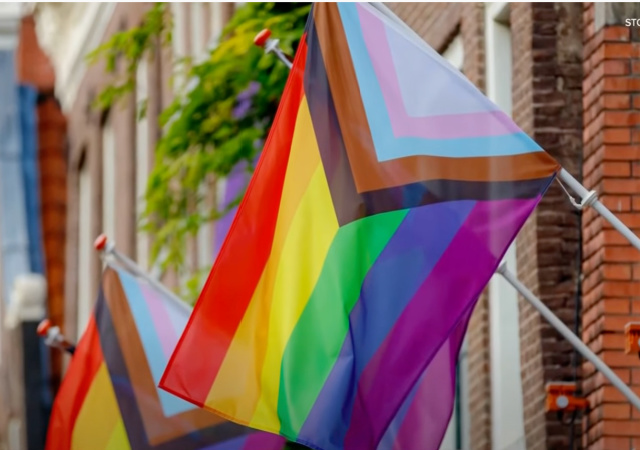Removal of Pride and BLM Flags at U. South Florida St. Petersburg Outrages Students
Recently, the University of South Florida St. Petersburg campus made headlines when it removed Pride and Black Lives Matter (BLM) flags that were displayed on campus. The decision caused outrage among students and sparked a heated debate about freedom of expression, diversity, and inclusion on campus.
The Removal
The decision to remove the flags was made by university administrators, who cited concerns about the flags being displayed on public property. They argued that the flags violated university policy, which prohibits the display of political or activist symbols on campus buildings.
However, many students and faculty members saw the removal of the flags as an attack on their freedom of expression and a rejection of their identities. They argued that the Pride and BLM flags were important symbols of support for LGBTQ+ and Black communities on campus, and that removing them sent a harmful message to marginalized groups.
Student Reactions
Students at the University of South Florida St. Petersburg campus were quick to voice their outrage over the removal of the flags. They organized protests, wrote letters to university administrators, and launched social media campaigns to demand that the flags be reinstated.
Many students felt that the removal of the flags was a clear indication that the university was not committed to supporting its diverse student body. They argued that the flags were a visible and important representation of the university’s values and that removing them was a step in the wrong direction.
Public Response
The removal of the Pride and BLM flags at the University of South Florida St. Petersburg campus also sparked a wider conversation about diversity, inclusion, and freedom of expression on college campuses. Many people took to social media to express their support for the students and to condemn the university’s decision.
Several organizations and advocacy groups also weighed in on the controversy, calling on the university to reconsider its decision and to prioritize the needs and voices of marginalized communities on campus.
Conclusion
The removal of the Pride and BLM flags at the University of South Florida St. Petersburg campus has sparked a heated debate about freedom of expression, diversity, and inclusion on college campuses. Students, faculty, and community members have voiced their outrage over the decision, arguing that it sends a harmful message to marginalized communities and undermines the university’s commitment to supporting diversity.
As the controversy continues to unfold, it remains to be seen how the university will respond to the backlash and whether it will reconsider its decision to remove the flags. In the meantime, students and supporters are continuing to fight for their right to express themselves and to hold their university accountable for upholding its values of inclusivity and support for all members of its community.
FAQs
Why were the Pride and BLM flags removed?
The University of South Florida St. Petersburg campus administrators cited concerns about the flags being displayed on public property and violating university policy, which prohibits the display of political or activist symbols on campus buildings.
What was the reaction from students and faculty?
Students and faculty members at the University of South Florida St. Petersburg campus were outraged by the removal of the flags, seeing it as an attack on their freedom of expression and a rejection of their identities.
What has been the public response to the controversy?
The removal of the Pride and BLM flags sparked a wider conversation about diversity, inclusion, and freedom of expression on college campuses, with many people expressing their support for the students and condemning the university’s decision.




